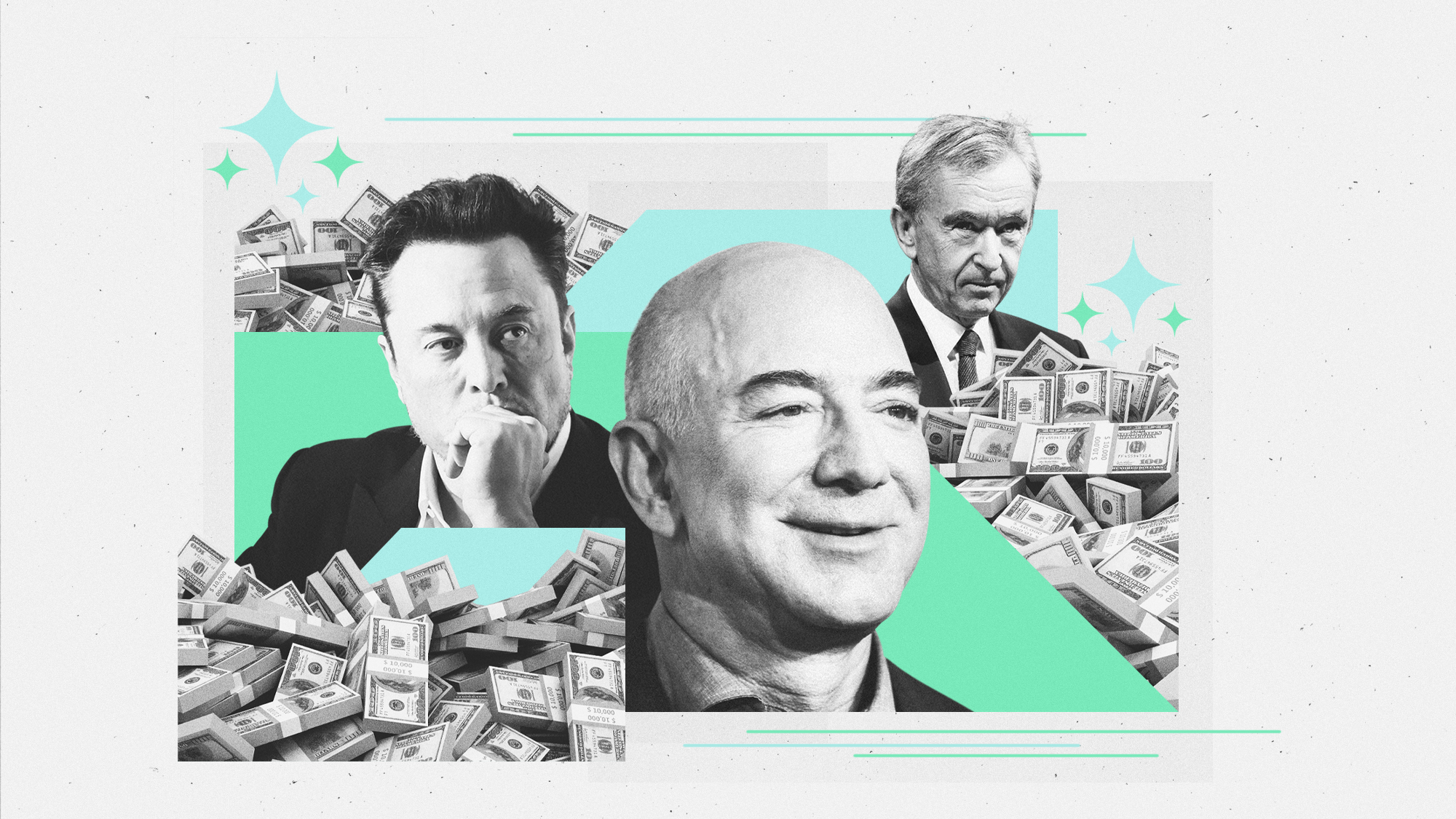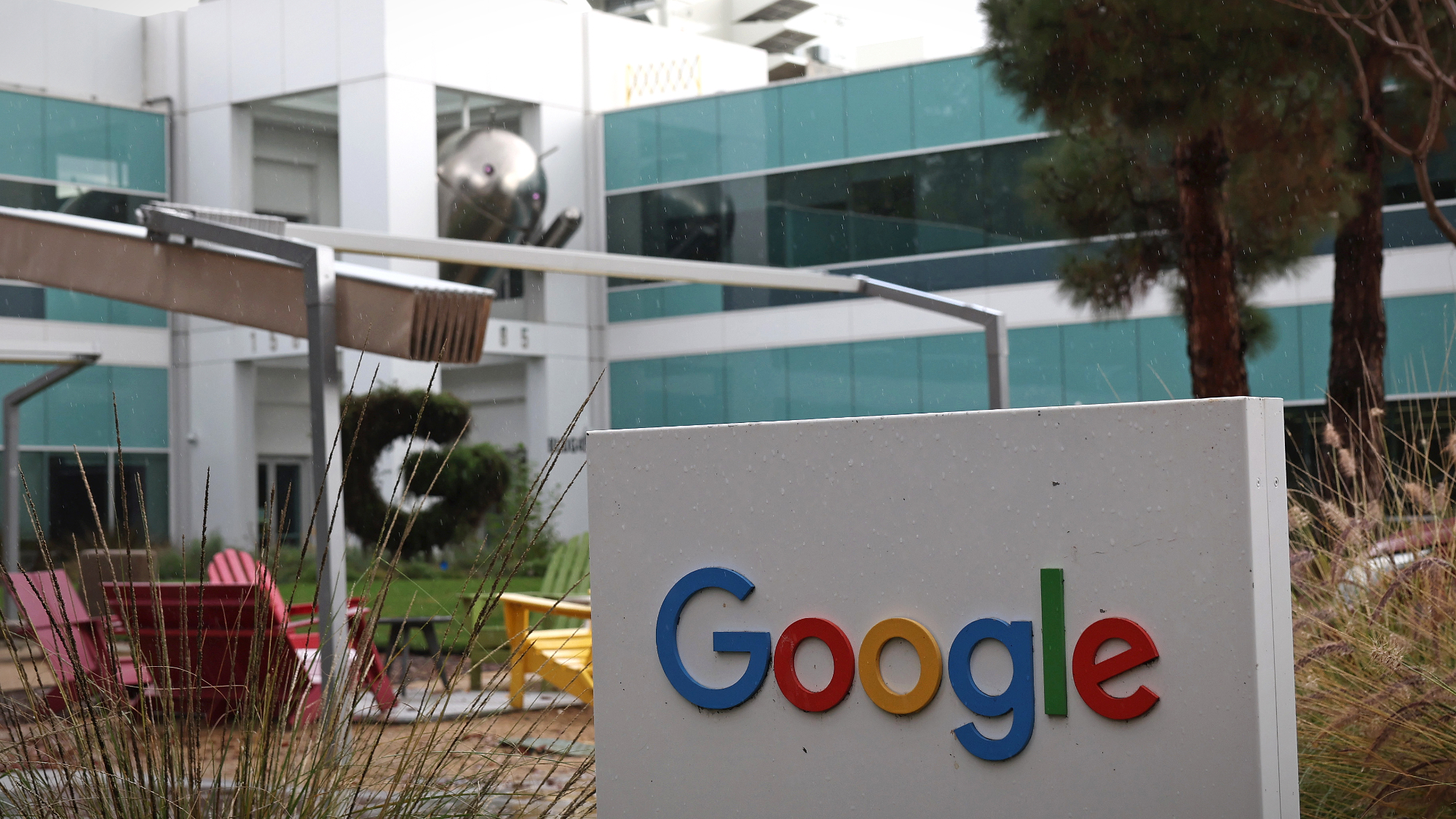What Big Tech CEOs are saying about their companies' layoffs
Tech companies are cutting thousands of jobs. Are the top bosses owning up to mistakes or 'sidestepping the blame'?


A free daily email with the biggest news stories of the day – and the best features from TheWeek.com
You are now subscribed
Your newsletter sign-up was successful
Layoffs are sweeping the tech industry. The culling began in late 2022, and has continued into 2023. Each new round of layoffs comes with a remorseful statement from a company executive, justifying what Bloomberg's Tim Culpan calls "the coldhearted approach to workforce cuts." Most companies are blaming the economy for their business woes, but the problems really stem from "boneheaded decisions made by CEOs," writes Ed Zitron at Insider. Some bosses are owning up to their mistakes outright. Others are pointing to economic pressures, trying to "save their reputation while sidestepping the blame," Zitron says. Here's a look at some of the most recent layoffs, and the boss' reasoning, in their own words:
Paypal
Online payments company Paypal recently announced it would be laying off 2,000 employees, or about 7 percent of its workforce. In a press release, PayPal CEO Dan Schulman said the slumping economy was mostly to blame for the job cuts, while simultaneously praising the company's ongoing restructuring efforts.
"We made significant progress in strengthening and reshaping our company to address the challenging macro-economic environment while continuing to invest to meet our customer's needs," Schulman said. "While we have made substantial progress in right-sizing our cost structure, and focused our resources on our core strategic priorities, we have more work to do."
The Week
Escape your echo chamber. Get the facts behind the news, plus analysis from multiple perspectives.

Sign up for The Week's Free Newsletters
From our morning news briefing to a weekly Good News Newsletter, get the best of The Week delivered directly to your inbox.
From our morning news briefing to a weekly Good News Newsletter, get the best of The Week delivered directly to your inbox.
Dell
Dell announced it would be laying off 6,650 workers, or around 5 percent of its workforce. The company has seen a drop in demand for its main products — PCs and laptops — and this was cited as the main reason for the job cuts.
"Market conditions continue to erode with an uncertain future," COO Jeff Clarke said in a memo to employees. Indeed, The Verge noted that there had been a 37 percent decline in Dell's computer shipments during the holidays.
Clarke also said that the cost-cutting measures Dell implemented, such as limiting travel and reducing outside services spending, simply had not been impactful. "The steps we've taken to stay ahead of downturn impacts — which enabled several strong quarters in a row — are no longer enough," he said.
Microsoft
Once the pillar of the tech industry, Microsoft still remains among the largest players in the space. But it isn't immune to the troubles plaguing Big Tech. The company announced it would be laying off 10,000 workers, which is a big number but amounts to less than 5 percent of its total workforce.
A free daily email with the biggest news stories of the day – and the best features from TheWeek.com
Microsoft CEO Satya Nadella said in a memo the cuts were a cost-saving measure amidst an economic downturn and ongoing efforts to turn towards more AI-based advancements.
"This is the context in which we as a company must strive to deliver results on an ongoing basis, while investing in our long-term opportunity," Nadella said. "It's important to note that while we are eliminating roles in some areas, we will continue to hire in key strategic areas. We know this is a challenging time for each person impacted."
He added that the company would also continue to invest in other strategic areas beyond hiring.
Salesforce
Some company executives acknowledged the mistakes that made job cuts a necessity.
Salesforce, a company that makes cloud-based software for businesses, recently announced it would eliminate 8,000 jobs, or about 10 percent of the company's workforce, citing concerns about the "environment" of the tech space and a dip in the economy. The layoffs reportedly include people in tech, sales, and marketing divisions.
In a letter to employees announcing the layoffs, Salesforce CEO and co-founder Mark Benioff said the company had hired too many people, and blamed himself.
"I've been thinking a lot about how we came to this moment. As our revenue accelerated through the pandemic, we hired too many people leading into this economic downturn we're now facing, and I take responsibility for that," Benioff wrote. "For those who will be leaving Salesforce, our priority is to fully support them, including by offering a generous package."
Salesforce indeed ramped up hiring in a major way last year. The New York Times reported the company employed 80,000 people at the end of October 2022, compared to just 48,000 three years earlier.
Google's parent company, Alphabet, announced it would lay off 6 percent of its workforce, or about 12,000 employees. The layoffs reportedly came rather quickly, with some employees saying they were notified out of the blue about being let go. In a memo to employees obtained by CNBC, Alphabet CEO Sundar Pichai suggested the layoffs were necessary because the company over-hired.
"Over the past two years, we've seen periods of dramatic growth. To match and fuel that growth, we hired for a different economic reality than the one we face today," Pichai wrote. "We've undertaken a rigorous review across product areas and functions to ensure that our people and roles are aligned with our highest priorities as a company. The roles we're eliminating reflect the outcome of that review."
Pichai said he took "full responsibility for the decisions that led us here."
Jonathan Bellack, a 15-year veteran of the company who was planning to retire in 2023, told ABC News his firing left him feeling torn. "A lot of people had no idea that this was happening or that they might be involved," he said. "For them, it's obviously a shock."
Philips
Dutch conglomerate Philips makes everything from high-end coffee machines to light bulbs, but it has recently shifted mostly to focus on health technology. Phillips announced that it would be eliminating 6,000 jobs, bringing the total number of recent layoffs at Philips to 10,000, or about 13 percent of its workforce. The company said half of the layoffs will be made this year, while the other half will be made by 2025.
Philips has seen its profits dip due to a respiratory device recall that Reuters reported slashed 70 percent of the company's market value. Philips CEO Roy Jakobs seemed to pin at least part of the blame for the layoffs on a poor company strategy, saying, "we did not execute well." He told CNBC the cuts were a "necessary intervention to help us to become competitive and lean in the way we go forward in the market."
Zoom
Video conferencing platform Zoom did very well in the early days of the COVID-19 pandemic, when everyone was working from home. But the so-called "Zoom Boom" has met its end as workers return to the office. The company said it would be laying off 1,300 employees, or about 15 percent of its workforce.
"I know this is a difficult message to hear, and certainly not one I ever wanted to deliver," Zoom CEO Eric Yuan said in a memo to employees. Yuan noted that the shift away from remote work had taken a toll on the company's profits and stock prices, even if Zoom remains a widely utilized tool.
"As the world transitions to life post-pandemic, we are seeing that people and businesses continue to rely on Zoom," Yuan said, adding that "the uncertainty of the global economy, and its effect on our customers, means we need to take a hard – yet important – look inward to reset ourselves."
Yuan also did something out of the ordinary and announced that he himself would take a significant pay cut and also forgo his 2023 bonus. While details were not finalized, Yuan said he would slash 98 percent of his salary, which Bloomberg reported was $301,731 in 2022.
Meta
Best known as the parent company of Facebook, Meta announced that it was slashing another 10,000 jobs. This marked the second mass layoff from the social media giant in four months, after the company previously parted ways with 11,000 employees in Nov. 2022. The 21,000 jobs represent by far the largest culling in Facebook's history, and Meta also announced that it would not fill 5,000 previously vacant positions.
Despite the sweeping layoffs, Meta CEO Mark Zuckerberg remained surprisingly optimistic, writing in a memo that his company was undergoing a "year of efficiency." Zuckerberg said that the goal of these layoffs were to "make us a better technology company" and "improve our financial performance in a difficult environment so we can execute our long-term vision."
Zuckerberg continued with his glass-half-full view of the situation by saying that Meta plans "to lift hiring and transfer freezes in each group" within the coming months, and that the ongoing job cuts would not be permanent. His words also came as an SEC filing shows that Meta's expenses throughout 2023 are expected to be significantly lowered.
Mar. 14, 2023: This article has been updated with new information throughout.
Justin Klawans has worked as a staff writer at The Week since 2022. He began his career covering local news before joining Newsweek as a breaking news reporter, where he wrote about politics, national and global affairs, business, crime, sports, film, television and other news. Justin has also freelanced for outlets including Collider and United Press International.
-
 6 of the world’s most accessible destinations
6 of the world’s most accessible destinationsThe Week Recommends Experience all of Berlin, Singapore and Sydney
-
 How the FCC’s ‘equal time’ rule works
How the FCC’s ‘equal time’ rule worksIn the Spotlight The law is at the heart of the Colbert-CBS conflict
-
 What is the endgame in the DHS shutdown?
What is the endgame in the DHS shutdown?Today’s Big Question Democrats want to rein in ICE’s immigration crackdown
-
 The rise of the world's first trillionaire
The rise of the world's first trillionairein depth When will it happen, and who will it be?
-
 Google loses antitrust suit, declared 'monopolist'
Google loses antitrust suit, declared 'monopolist'Speed Read A federal court has ruled that Google illegally dominated the internet search industry
-
 The surge in child labor
The surge in child laborThe Explainer A growing number of companies in the U.S. are illegally hiring children — and putting them to work in dangerous jobs.
-
 Your new car may be a 'privacy nightmare on wheels'
Your new car may be a 'privacy nightmare on wheels'Speed Read New cars come with helpful bells and whistles, but also cameras, microphones and sensors that are reporting on everything you do
-
 Empty office buildings are blank slates to improve cities
Empty office buildings are blank slates to improve citiesSpeed Read The pandemic kept people home and now city buildings are vacant
-
 Why auto workers are on the brink of striking
Why auto workers are on the brink of strikingSpeed Read As the industry transitions to EVs, union workers ask for a pay raise and a shorter workweek
-
 American wealth disparity by the numbers
American wealth disparity by the numbersThe Explainer The gap between rich and poor continues to widen in the United States
-
 Cheap cars get run off the road
Cheap cars get run off the roadSpeed Read Why automakers are shedding small cars for SUVs, and what that means for buyers
